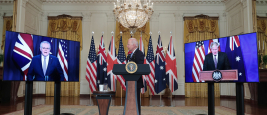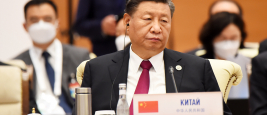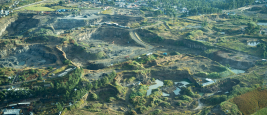The signing of the AUKUS partnership agreement between Australia, the United States and the United Kingdom in September 2021 seems to have reconstituted a natural coalition between “Anglo-Saxon” states. This solidarity generates contradictory judgments.

Publications
With over 150 publications issued each year
under an open access policy in French, English, German and Russian,
Ifri enriches the international debate with a constant concern for
objectivity, intellectual rigor, transversality, openness, and support to public and private decision-making.
The Pacific Islands Countries (PICs) were the first to ratify the Paris climate agreement in 2015. Indeed, for them, climate change has had very concrete implications for years. Islanders have seen the sea level rising, endangering the very existence of atolls. They have also experienced...
As the 20th national congress of the Chinese Communist Party (CCP) draws closer, this is an opportune moment to appraise China’s economic achievements over the past decade under President Xi Jinping’s guidance and to identify the challenges the country will have to address during the next five...
The EU’s basic assumptions, on which it grounds its economic and trade power, are being steadily cast into doubt. The EU’s main trade partners, the US and China, increasingly set their sights on securing their supply chains, which may further a potential decoupling.
In line with the anti-Huawei diplomatic campaign of the Trump and Biden administrations, the United States has promoted an alternative: Open RAN, a concept defined by "open" network architectures. At the intersection of 5G geopolitics and standards, what risks and opportunities does Open RAN...
The tremendous demographic challenges facing China will not significantly affect the People’s Liberation Army (PLA) in the immediate future, but will become more problematic in the medium and long term. The rapid aging of the population and the resulting socio-economic imbalances will put...
China and Africa share a strong relationship since the wave of African independences in the 1960s. Nevertheless, China-Africa trade has experienced an unprecedented surge since the late 1990s and has been accompanied by the rise of a discourse of "win-win" partnership between China and Africa....
Against the backdrop of the war in Ukraine, the Bundeswehr has been led to refocus on territorial defense and collective security, which constituted the core of its activity for decades. This evolution break with the long period of efforts during which the Bundeswehr painfully tried to...
The current geopolitical situation has disrupted the European and global order, which were both consolidated in the 1990s and have been key factors in the modern German model. The Franco-German duo is currently facing new challenges and it will have to respond appropriately in a time when the...
A rapidly-expanding market












